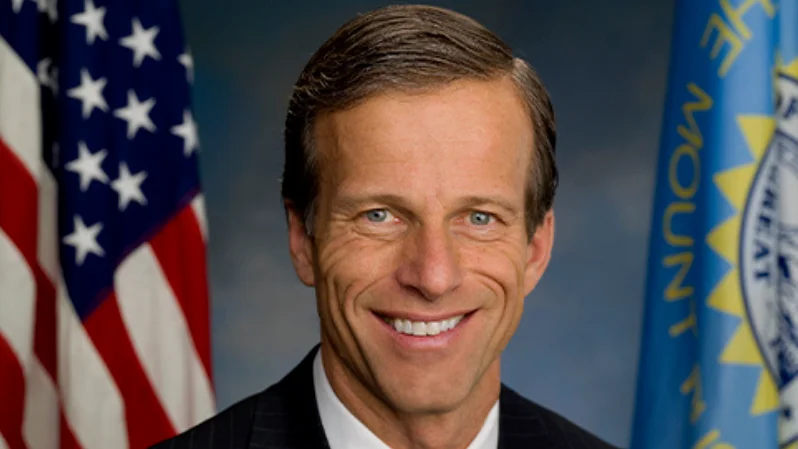Senator John Thune, US Senator for South Dakota | Official U.S. Senate headshot
Senator John Thune, US Senator for South Dakota | Official U.S. Senate headshot
U.S. Senate Majority Leader John Thune (R-S.D.) addressed the press alongside other Senate Republican leaders, outlining key aspects of a new budget reconciliation bill received from the House and recently completed by the Senate Finance Committee.
“We have received, as you know, from the House, a budget reconciliation bill,” Thune said. “The Senate, now, Finance Committee has completed its portion of it, and it was released, the text was, last night.”
Thune highlighted several priorities within the legislation. “We believe it leads to a stronger and more prosperous America, and so we are excited to get this bill out and on the floor,” he stated. He also commended members of the Senate Finance Committee and Chairman Mike Crapo for their efforts in finalizing the bill.
Among the main provisions discussed were measures to make permanent various tax code elements introduced in 2017. “It makes permanent the 2017 Tax Cuts and Jobs Act rates,” Thune said. The legislation would also solidify expansions to the child tax credit and increased standard deduction.
Additional business tax deductions would be made permanent under this bill, which Thune argued would support economic growth and job creation. “It makes permanent a lot of the business tax deductions, which will lead to growth and expansion in the economy and better-paying jobs,” he noted.
The proposal includes several items that align with former President Trump’s campaign promises: “And, of course, it includes many of President Trump’s promises on the campaign trail, including no tax on tips, no tax on overtime, and reduced taxes for seniors.”
Thune emphasized that failing to pass these changes could result in significant tax increases for Americans at year’s end. “I don’t think it’s a universe that anybody wants to live in, because it means a $4 trillion tax increase at the end of the year on the American people,” he said. He added that $2.6 trillion of this increase would affect families earning less than $400,000 annually while $600 billion would impact small businesses.
The bill also contains reforms intended to strengthen Medicaid by returning focus to its original purpose. “It also includes a number of reforms and strengthens Medicaid in a way that makes it stronger and gets it back to what it was designed to do and for the people it was intended to benefit,” Thune concluded.



 Alerts Sign-up
Alerts Sign-up